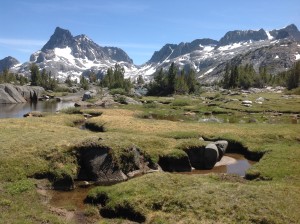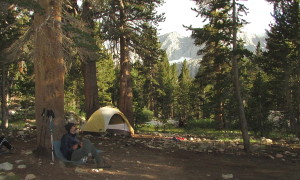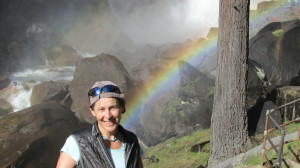Trying Times Remind Us About Luck
Fresno Bee, August 9, 2014 
As the horrors of this summer unfold – war, disease and refugee children – we should reflect on how lucky we are. If you had been born in Central America, the Middle East or West Africa, your life would be quite different. Of course, you don’t have to travel far to see bad luck. Violence, illness and homelessness occur here, too.
Einstein once said, referring to the deep structure of reality, that God does not play dice. But it does seem that a dice-playing divinity rules our lives. Life and death, success and failure, are often simply matters of luck. Happiness and destitution hinge on the roll of the cosmic dice.
Some believe that a wise and benevolent providence guides our lives. From this point of view, even bad luck works out for the best in the long run. That’s a nice idea. But it is hard to understand why God allows some to thrive while others suffer. If we can’t discern the reason behind our fortunes or misfortunes, we might as well chalk it up to chance.
Americans like to believe that winners make their own luck. Walt Whitman boldly stated the American faith in self-made luck: “Henceforth I ask not good-fortune, I myself am good-fortune.” Whitman told us to take to the road to find our fortune. To get lucky, you do have to open your heart to the world and embrace opportunities when they arrive. This hopeful idealism makes sense in an open and welcoming world.
But for some, the dice are loaded against them. The plight of the children fleeing Central America reminds us that roads are often closed and that welcome mat can be pulled in. A similar problem stacks the deck against the children of Africa and the Middle East. We might admire the courage of refugees who take to the road to find a better life. But the homeless wandering our streets remind us that fortune is hard to find on the open road.
Hard work and determination cannot guarantee survival for unlucky children born into war, poverty and disease. These afflictions prey equally upon the smart and the stupid. Industrious folks may have a slight advantage in Gaza, Liberia or Honduras. But talent and tenacity can’t overcome the chance occurrences of history and geography.
We don’t choose where or when we are born. Nor do we choose our genetic endowment or cultural heritage. The most important facts of our biographies are entirely beyond our control and subject to the cosmic lottery.
The existentialist philosophers coined the term “thrown-ness” to describe the human condition. We are thrown_like dice_into the world. We find ourselves in a place and time, in a body, and living a life that we did not create or choose. Each moment of our lives involves another throw of the dice.
Our only power is in choosing how to react to the rolling dice. Virtue and character appear in the way we navigate the winds of fortune. We can give up in despair and resign ourselves to fate. Or we can resolve to work hard, despite the odds. But at the end of the day, you don’t control the way the dice fall.
Understanding the role of luck in life should make us more modest about our triumphs and less ashamed of our defeats. Every great achievement contains an element of chance that calls pride into question. Seeing that every loss includes some bad luck can moderate feelings of blame or regret.
The truth of luck is that it is always changing. It can be difficult to appreciate good luck, when you are worried about losing it. But admitting the fragility of good fortune can lead you to savor the sweetness of success. And understanding that bad luck does not last forever can give you solace while you wait for your fortunes to change.
In the end, to understand luck is to develop compassion. The unlucky have usually done nothing to deserve their misfortune. Another roll of the dice and it could be you digging through the rubble, burying your beloved or fleeing poverty. Mercy, kindness and generosity are needed in a hard luck world where, it seems, the gods do play dice.





